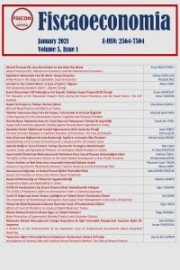Gümrük Birliği ve Tarım Ürünleri: Türkiye Üzerine Bir Armington Modeli Analizi
Customs Union and Agricultural Products: An Armington Model Analysis on Turkey
Author(s): Mert Şaki, H. Ozan EruygurSubject(s): Agriculture, Economic policy, International relations/trade, Transformation Period (1990 - 2010), Present Times (2010 - today), EU-Legislation
Published by: Ahmet Arif Eren
Keywords: Customs Union; EU-Turkey Relations; Trade Effects; Armington Model;
Summary/Abstract: As a result of the liberalization trend that started after World War II and accelerated and continued to overcome the obstacles in international trade, the volume of foreign trade expanded. Static and dynamic effects of customs unions, which is one of the economic integrations created by countries and country groups within this liberalization trend, are an important issue. Custom Unions between EU and Turkey was established at 1996. The customs union covers only industrial goods and some processed agricultural products. The subject of the study is to foresee the static effects of the existing customs union on the basis of selected products if it covers agricultural products. Turkey's imports are measured to be realized within the scope of products handled from EU and rest of the world countries. In the analysis part of the study, the Armington model was preferred. The model accepts the assumption that the products are different due to geographical conditions and therefore the products are not perfect substitutes. Calculations were made over the import data for 30 products between 1995-2012. According to the simulation results, Turkey's total import demand for agricultural products is expected to increase by 25.4%. It is also estimated that imports from the EU will increase by 63%.
Journal: Fiscaoeconomia
- Issue Year: 5/2021
- Issue No: 1
- Page Range: 177-194
- Page Count: 18
- Language: Turkish

